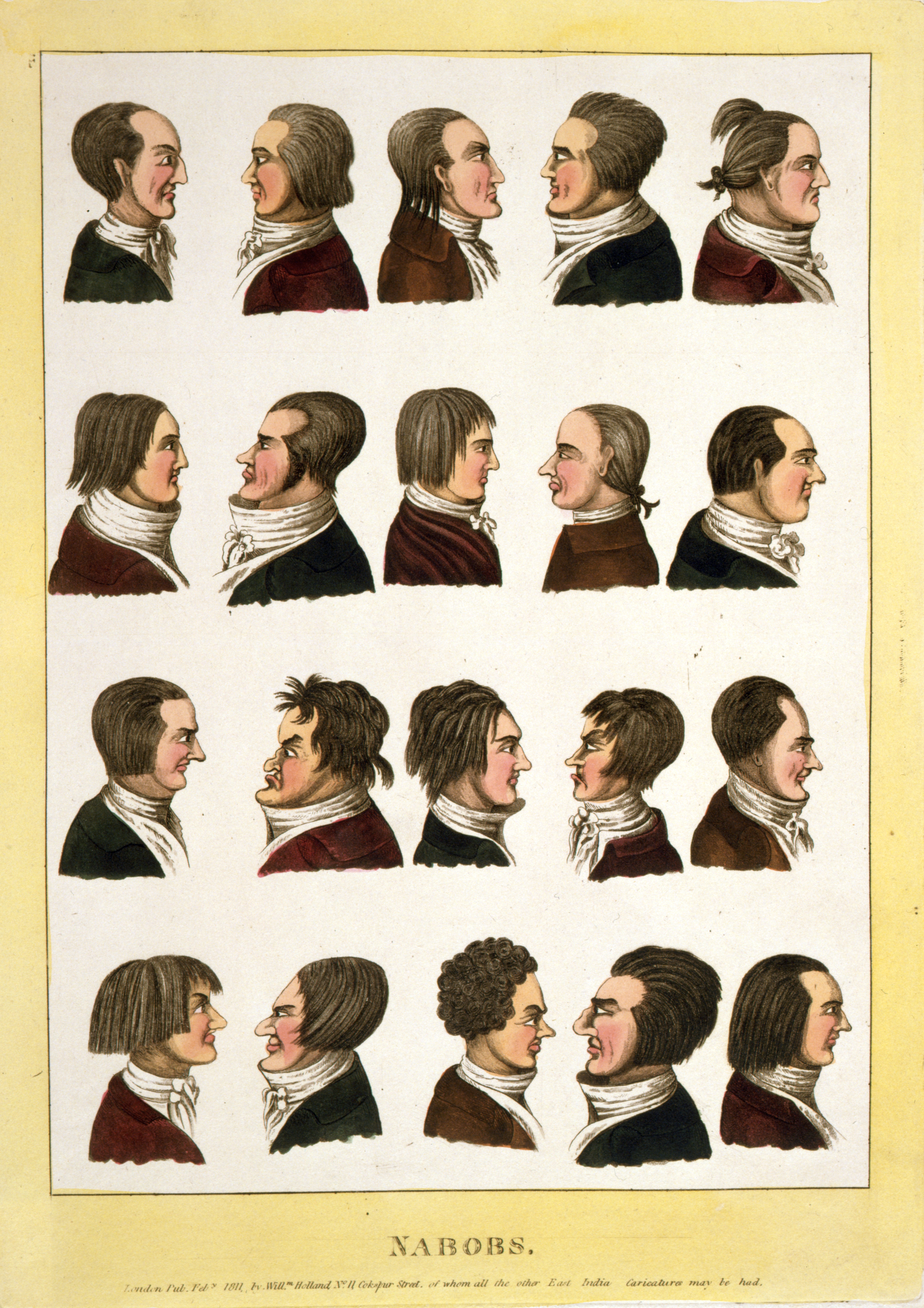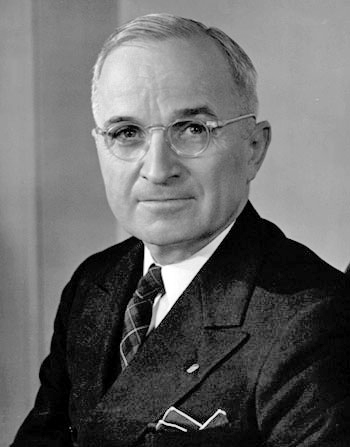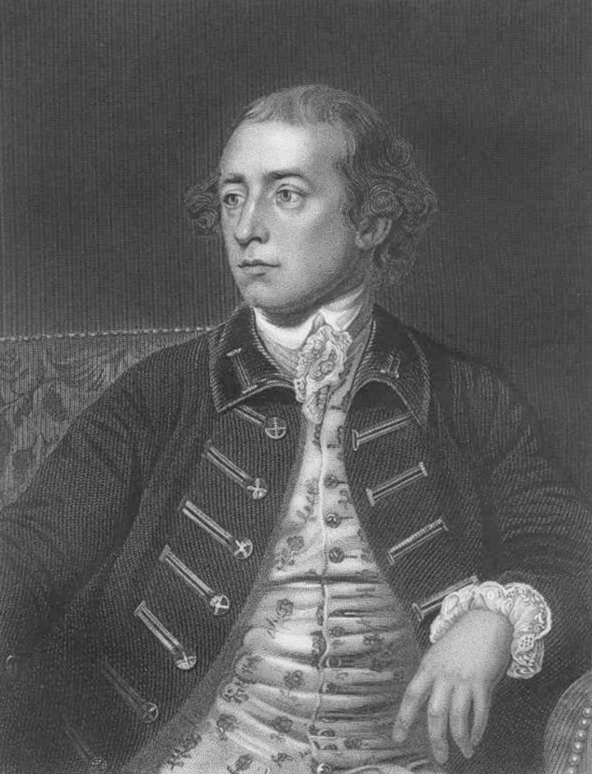|
Nabob
A nabob is a conspicuously wealthy man deriving his fortune in the east, especially in India during the 18th century with the privately held East India Company. Etymology ''Nabob'' is an Anglo-Indian term that came to English from Urdu, possibly from Hindustani ''nawāb''/''navāb'', borrowed into English during British colonial rule in India. It is possible this was via the intermediate Portuguese ''nababo'', the Portuguese having preceded the British in India. The word entered colloquial usage in England from 1612. Native Europeans used ''nabob'' to refer to those who returned from India after having made a fortune there. In late 19th century San Francisco, rapid urbanization led to an exclusive enclave of the rich and famous on the west coast who built large mansions in the Nob Hill neighborhood. This included prominent tycoons such as Leland Stanford, founder of Stanford University and other members of The Big Four who were known as ''nabobs'', which was shortened ... [...More Info...] [...Related Items...] OR: [Wikipedia] [Google] [Baidu] |
Nawab
Nawab is a royal title indicating a ruler, often of a South Asian state, in many ways comparable to the Western title of Prince. The relationship of a Nawab to the Emperor of India has been compared to that of the Kingdom of Saxony, Kings of Saxony to the German Emperor. In earlier times the title was ratified and bestowed by the reigning Mughal emperor to semi-autonomous Muslim rulers of subdivisions or princely states in the Indian subcontinent loyal to the Mughal Empire, for example the Nawabs of Bengal. "Nawab" usually refers to males and literally means ''Viceroy''; the female equivalent is "Begum" or "''Nawab Begum''". The primary duty of a Nawab was to uphold the sovereignty of the Mughal emperor along with the administration of a certain province. The title of "nawabi" was also awarded as a personal distinction by the paramount power, similar to a British peerage, to persons and families who ruled a princely state for various services to the Government of British Raj ... [...More Info...] [...Related Items...] OR: [Wikipedia] [Google] [Baidu] |
The Nabob
''The Nabob'' is a comedy play, a satire, by the English writer Samuel Foote. It was first performed at the Haymarket Theatre on 29 June 1772. The first interpretation of the role of ''Mrs Matchem'' was made by Mrs Gardner. Isaac Reed, by profession a lawyer, journalist, editor, and biographer, saw The Nabob performed four times, first in 1772, twice in 1774, and then again in 1781. A wealthy nabob A nabob is a conspicuously wealthy man deriving his fortune in the east, especially in India during the 18th century with the privately held East India Company. Etymology ''Nabob'' is an Anglo-Indian term that came to English from Urdu, poss ... Sir Matthew Mite returns to England from India and tries to buy his way into British political system. He hoped to use his Bengal loot to marry into an ancient family (demanded the hand of John Oldham's daughter) and corruptly buy election to Parliament for the constituency of Bribe 'em. At one point in the play, Mite's assistant, Tou ... [...More Info...] [...Related Items...] OR: [Wikipedia] [Google] [Baidu] |
Samuel Foote
Samuel Foote (January 1720 – 21 October 1777) was a Cornish dramatist, actor and Actor-manager, theatre manager. He was known for his comedic acting and writing, and for turning the loss of a leg in a riding accident in 1766 to comedic opportunity. Early life Born into a well-to-do family,Hartnoll, p. 290. Foote was Baptism, baptised in Truro, Cornwall, on 27 January 1720.Britannica. His father, Samuel Foote, held several public positions, including mayor of Truro, British House of Commons, Member of Parliament representing Tiverton, Devon, Tiverton and a commissioner in the Prize Office. His mother, née Eleanor Goodere, was the daughter of Sir Edward Goodere, 1st Baronet, Sir Edward Goodere Baronet of Hereford.Murphy, p. 1104. Foote may have inherited his wit and sharp humour from her and her family which was described as "eccentric ... whose peculiarities ranged from the harmless to the malevolent."Howard, p. 131. About the time Foote came of age, he inherited his first fo ... [...More Info...] [...Related Items...] OR: [Wikipedia] [Google] [Baidu] |
Nixon Administration
Richard Nixon's tenure as the 37th president of the United States began with his first inauguration on January 20, 1969, and ended when he resigned on August 9, 1974, in the face of almost certain impeachment and removal from office, the only U.S. president ever to do so. He was succeeded by Gerald Ford, whom he had appointed vice president after Spiro Agnew became embroiled in a separate corruption scandal and was forced to resign. Nixon, a prominent member of the Republican Party from California who previously served as vice president for two terms under president Dwight D. Eisenhower from 1953 to 1961, took office following his narrow victory over Democratic incumbent vice president Hubert Humphrey and American Independent Party nominee George Wallace in the 1968 presidential election. Four years later, in the 1972 presidential election, he defeated Democratic nominee George McGovern, to win re-election in a landslide. Although he had built his reputation as a ve ... [...More Info...] [...Related Items...] OR: [Wikipedia] [Google] [Baidu] |
Vice President Of The United States
The vice president of the United States (VPOTUS) is the second-highest ranking office in the Executive branch of the United States government, executive branch of the U.S. federal government, after the president of the United States, and ranks first in the United States presidential line of succession, presidential line of succession. The vice president is also an officer in the Legislative branch of the United States federal government, legislative branch, as the president of the Senate. In this capacity, the vice president is empowered to Presiding Officer of the United States Senate, preside over the United States Senate, but may not vote except to List of tie-breaking votes cast by the vice president of the United States, cast a tie-breaking vote. The vice president is indirect election, indirectly elected at the same time as the president to a four-year term of office by the people of the United States through the Electoral College (United States), Electoral College, but the ... [...More Info...] [...Related Items...] OR: [Wikipedia] [Google] [Baidu] |
Robert Clive, 1st Baron Clive
Robert Clive, 1st Baron Clive, (29 September 1725 – 22 November 1774), also known as Clive of India, was the first British Governor of the Bengal Presidency. Clive has been widely credited for laying the foundation of the British East India Company (EIC) rule in Bengal. He began as a "writer" (the term used then in India for an office clerk) for the EIC in 1744, however after being caught up in military action during the fall of Madras, Clive joined the EIC's private army. Clive rapidly rose through the military ranks of the EIC and was eventually credited with establishing Company rule in Bengal by winning the Battle of Plassey in 1757. In return for supporting the Nawab Mir Jafar as ruler of Bengal, Clive was guaranteed a jagir of £90,000 () per year, which was the rent the EIC would otherwise pay to the Nawab for their tax-farming concession. When Clive left India in January 1767 he had a fortune of £900,000 () which he remitted through the Dutch East India Compan ... [...More Info...] [...Related Items...] OR: [Wikipedia] [Google] [Baidu] |
Governor-General Of India
The governor-general of India (1833 to 1950, from 1858 to 1947 the viceroy and governor-general of India, commonly shortened to viceroy of India) was the representative of the monarch of the United Kingdom in their capacity as the emperor or empress of India and after Indian independence in 1947, the representative of the monarch of India. The office was created in 1773, with the title of governor-general of the Presidency of Fort William. The officer had direct control only over his presidency but supervised other East India Company officials in India. Complete authority over all of British territory in the Indian subcontinent was granted in 1833, and the official came to be known as the governor-general of India. In 1858, because of the Indian Rebellion the previous year, the territories and assets of the East India Company came under the direct control of the British Crown; as a consequence, company rule in India was succeeded by the British Raj. The governor-general ( ... [...More Info...] [...Related Items...] OR: [Wikipedia] [Google] [Baidu] |
Warren Hastings
Warren Hastings (6 December 1732 – 22 August 1818) was a British colonial administrator, who served as the first governor of the Presidency of Fort William (Bengal), the head of the Supreme Council of Bengal, and so the first governor-general of Bengal in 1772–1785. He and Robert Clive are credited with laying the foundation of the British Empire in India. He was an energetic organizer and reformer. In 1779–1784 he led forces of the East India Company against a coalition of native states and the French. In the end, the well-organized British side held its own, while France lost influence in India. In 1787, he was accused of corruption and impeached, but he was eventually acquitted in 1795 after a long trial. He was made a privy councillor in 1814. Early life and education Warren Hastings was born in Churchill, Oxfordshire, in 1732 to Reverend Penyston Hastings and his wife Hester (née Warren), who died soon after he was born.Gloucestershire, England, Church of Engl ... [...More Info...] [...Related Items...] OR: [Wikipedia] [Google] [Baidu] |
Battle Of Plassey
The Battle of Plassey was a decisive victory of the British East India Company, under the leadership of Robert Clive, over the Nawab of Bengal and his French Indies Company, French allies on 23 June 1757. The victory was made possible by the defection of Mir Jafar, Nawab Siraj-ud-Daulah's commander in chief, as well as much of the Bengal Subah's armies being earlier committed against an Sack of Delhi (1757), Afghan invasion led by Ahmad Shah Durrani against the Mughal Empire. The battle helped the British East India Company take control of Bengal Subah, Bengal in 1772. Over the next hundred years, they continued to expand their control over vast territories in the rest of the Indian subcontinent and British rule in Burma, Burma. The battle took place at Palashi (Anglicised version: ''Plassey'') on the banks of the Hooghly River, about north of Calcutta (now Kolkata) and south of Murshidabad in West Bengal, then capital of Bengal Subah. The belligerents were the British East Ind ... [...More Info...] [...Related Items...] OR: [Wikipedia] [Google] [Baidu] |
Bibi (title)
Bibi () is frequently used as a respectful title for Muslim, Christian and Sikh women in South Asia when added to the given name. Bibi, like Begum, is used as a surname by many women in the region. In Anglo-Indian, the term bibi came to be seen as a synonym for mistress. Etymology The word "Bibi", which made its way into the Pashto and Urdu language, was originally borrowed from Classical Persian ( ''bī-bī''). It was translated as "grandma" (''chiefly'' in Pashto, ''Dari, Tajik''). Besides this it was also used as respectful title to address senior women. Notable people known by this title * Aisha Bibi, 12th-century noble woman, after whom a memorial and village are named in modern Kazakhstan * Bibi Mubarika, 16th a Yusufzai Pashtun Empress consort in Mughal Empire. She was a wife of first Mughal emperor Babur. * Bibi Ambha, the Hindu origin mother of Sikandar Lodi * Asia Bibi, a Catholic Christian worker accused of blasphemy in Pakistan * Bushra Bibi, wife of Imr ... [...More Info...] [...Related Items...] OR: [Wikipedia] [Google] [Baidu] |
Mughal Empire
The Mughal Empire was an Early modern period, early modern empire in South Asia. At its peak, the empire stretched from the outer fringes of the Indus River Basin in the west, northern Afghanistan in the northwest, and Kashmir in the north, to the highlands of present-day Assam and Bangladesh in the east, and the uplands of the Deccan Plateau in South India.. Quote: "The realm so defined and governed was a vast territory of some , ranging from the frontier with Central Asia in northern Afghanistan to the northern uplands of the Deccan plateau, and from the Indus basin on the west to the Assamese highlands in the east." The Mughal Empire is conventionally said to have been founded in 1526 by Babur, a Tribal chief, chieftain from what is today Uzbekistan, who employed aid from the neighboring Safavid Iran, Safavid and Ottoman Empires Quote: "Babur then adroitly gave the Ottomans his promise not to attack them in return for their military aid, which he received in the form of the ... [...More Info...] [...Related Items...] OR: [Wikipedia] [Google] [Baidu] |







